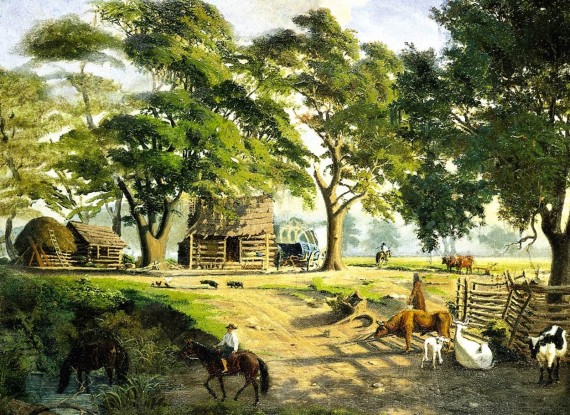I hope Grandfather fed them well
From out his meager store of corn
Or fodder pulled by Mother
‘Neath a blazing autumn sun–
So hot sometimes she said
That she and sister sickened
To the vomit stage, and tender arms
Were sliced by leaves’ fierce razor edge.
I know they had warm winter’s barn
and stabled shelter from both heat and cold.
They sometimes got a treat of pea-vine hay
Peanut–or sweeetpotato–vines.
Much else but names has come on down
Except their faithfullness of each to each and to our kin.
No doubt my mother could have told us more
About our two-mule family farm
But she now too is sadly gone
And with her, recollections of a way of life
So hard and honest as the day was long
And, as she said, the work was never done.
“Your grandpa always dearly loved
To walk behind a mule,” my mother said.
And he was faithful still to fought-for soil,
His father’s own in days of ’65,
Until Depression came in ’33
When Dove and Hog were auctioned off
To distant rows and stranger’s hands,
With land and house and all.
©Jim Kibler and the Abbeville Institute, 31 January 2021







